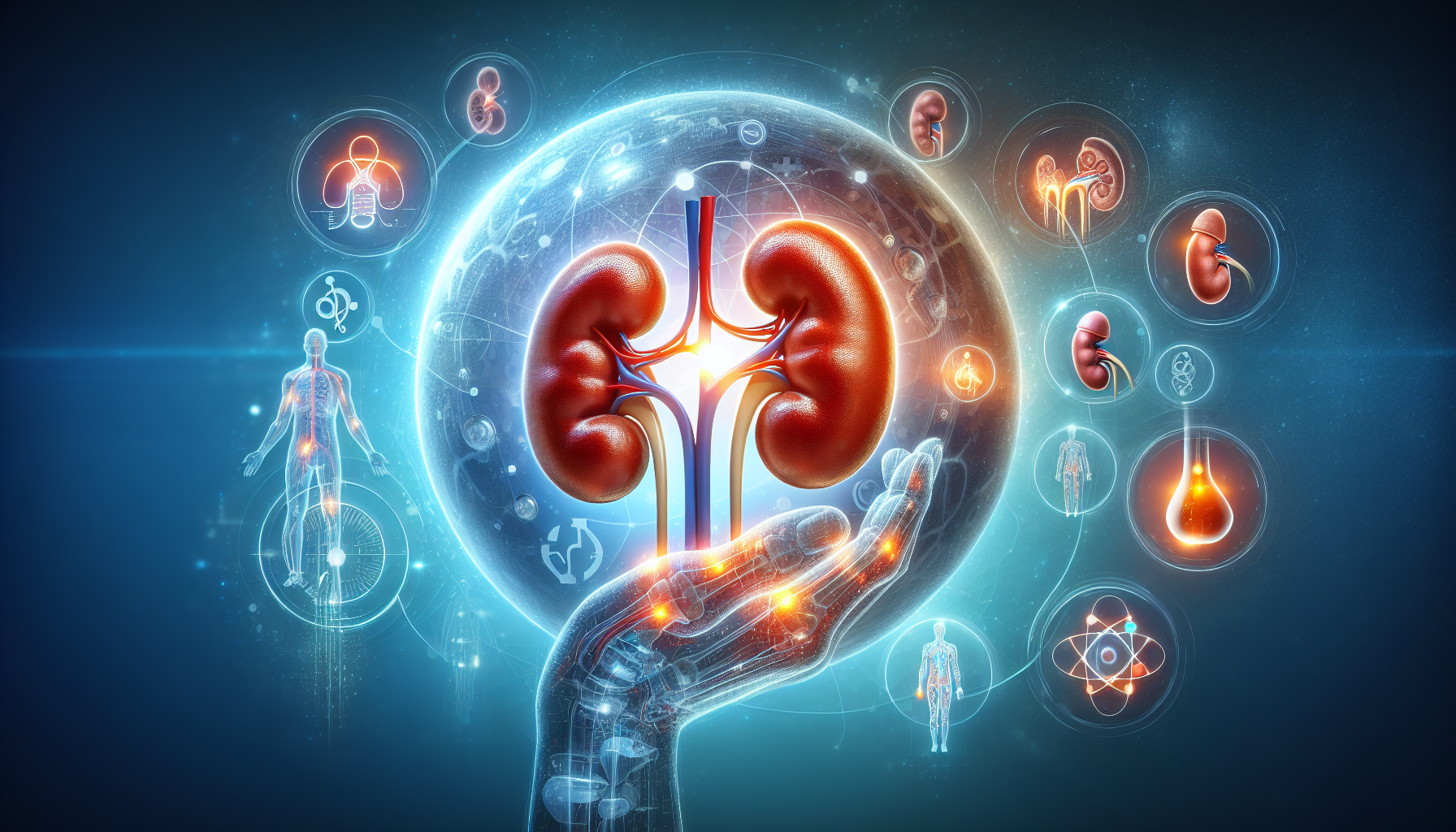New Hope for Kidney Transplant Patients: Pegcetacoplan Shows Promise Against Recurrent C3G and IC-MPGN
Key Takeaways
- Pegcetacoplan shows promising results in reducing inflammation and improving kidney health in transplant patients.
- The safety profile of pegcetacoplan is consistent with mild to moderate adverse events, making it a viable treatment option.
- Long-term studies are necessary to confirm the sustained benefits of pegcetacoplan in managing recurrent C3G and IC-MPGN.
Did You Know?
Introduction to Pegcetacoplan
New findings from the NOBLE trial shed light on a promising treatment for kidney transplant patients with tough-to-treat conditions like recurrent C3 glomerulopathy (C3G) and primary immune complex membranoproliferative glomerulonephritis (IC-MPGN). Both of these conditions can significantly affect kidney function and overall health.
Details of the NOBLE Trial
The NOBLE trial, presented at the 61st European Renal Association Congress, involved 22 kidney transplant recipients who were randomized to receive either pegcetacoplan or a placebo. Pegcetacoplan, given subcutaneously at 1080 mg twice weekly, was compared to placebo therapy, with all patients also receiving standard care.
This trial was meticulously planned with a focus on several key health indicators: reduction in C3c staining, changes in the C3G histologic index, and other markers of kidney function such as eGFR and protein levels in urine.
Initial Results Look Promising
Over the initial 12-week, double-blind portion of the trial, 80% of patients receiving pegcetacoplan showed significant reductions in C3c staining intensity, with 40% showing no detectable staining. Overall, the outcomes were quite positive, pointing towards a beneficial effect of pegcetacoplan on kidney health.
By week 52, continued improvements were observed. Among patients who completed the trial, 64% showed further reductions in C3c staining, and a notable number exhibited no signs of inflammation. Importantly, eGFR levels remained stable or improved in most patients, indicating that kidney function was maintained.
Impact on Proteinuria
Another significant finding was the reduction in proteinuria among patients with a high urine protein-to-creatinine ratio (UPCR) at the start of the study. This reduction is crucial, as high protein levels in urine can indicate kidney damage and poor outcomes.
Safety and Tolerability
Regarding safety, the majority of adverse events reported were mild to moderate, and they were in line with previous findings. Compliance with the study drug was generally good, with only a small proportion of patients not adhering to the treatment regimen.
No cases of severe complications like meningitis, graft losses, or deaths were reported, boosting confidence in the safety of pegcetacoplan.
Future Implications
These results suggest that pegcetacoplan could be a valuable addition to the therapeutic arsenal for managing recurrent C3G and IC-MPGN in kidney transplant patients. Continued research and longer-term studies are needed to confirm these findings and explore potential benefits further.
Conclusions
The NOBLE trial offers hope for patients and healthcare providers dealing with challenging kidney conditions. If further validated, pegcetacoplan could become a go-to treatment, improving quality of life and outcomes for many transplant recipients.
References
- Apellis Pharmaceuticals, Inc.https://investors.apellis.com/news-releases/news-release-details/positive-one-year-data-phase-2-study-pegcetacoplan-post






